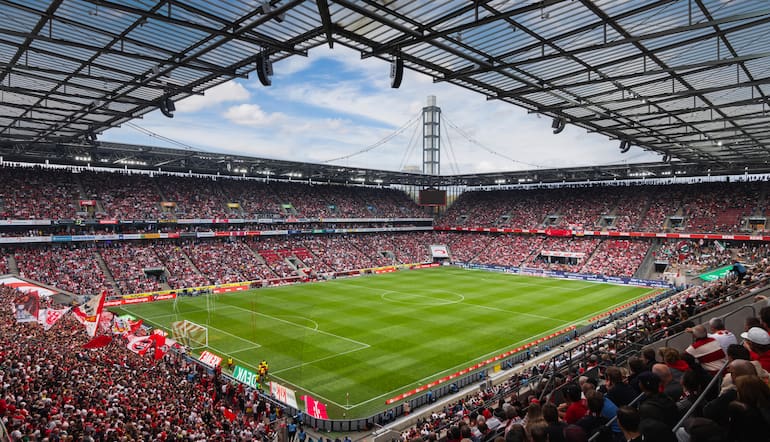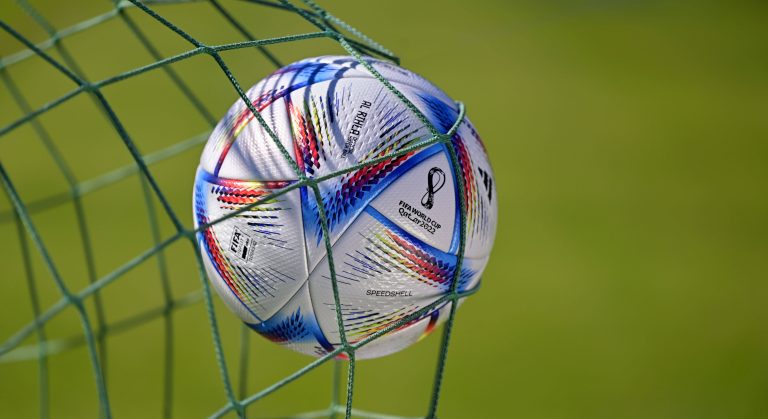German Bundesliga
The Most Successful Football Clubs In Germany

It was a surprise loss for Germany at the 1962 World Cup that propelled the Bundesliga into being.
Prior to its forming, many influential individuals across the country’s various governing bodies had called for a central professional league. The best German players were easily being lured abroad due to their semi-pro status. The national side was beginning to suffer.
Defeat at the hands of Yugoslavia was the final straw.
In 1963/64 therefore the inaugural Bundesliga season kicked off and we will rank the most successful German clubs from this moment.
It’s hardly a shock who takes the number one spot. They’re not nicknamed FC Hollywood for nothing.
Werder Bremen
Founded by teenagers who won a football during a tug-of-war competition, Bremen were a prominent presence in Northern Germany when the leagues were regionalised. They wasted little time in transferring that presence to the Bundesliga, claiming a title in the league’s second season.
Since then, Die Werderaner have been honourable mainstays in the Germany top-flight, bar two years separated by four decades that saw them immediately promoted on both occasions.
From time to time, the stars align and another title is attained, most memorably in 2004 when a domestic double was achieved. Their honours roll reads four league titles and five DFB-Pokal triumphs.
What cements their place here is a European Cup Winners Cup success in the early Nineties, as a splendid side spearheaded by Klaus Allofs dispensed with an equally splendid Monaco collective in the final.
Hamburger SV
Unquestionably the late-Seventies, early-Eighties was Die Rothosen’s zenith, a period that saw them win three Bundesliga titles and the European Cup Winners Cup. In 1983, at the height of their powers, they defeated Juventus in the Olympic Stadium, Greece, to lift the European Cup. They additionally reached the final in 1980, losing narrowly to Nottingham Forest.
Is it too simplistic to suggest that the marquee signing of Kevin Keegan helped to transform their fortunes and turn them – briefly – into a continental superpower? Perhaps, because alongside the two-time Ballon d’Or winner up front was Horst Hrubesch, who fired 96 goals in 159 appearances for the club.
Felix Magath wasn’t half bad either, scheming in midfield.
A shock relegation in 2018 ended 55 years of residency at the top and led to riots in the city. HSV haven’t found their way back since.
Borussia Monchengladbach
For a while way back in the day the Foals’ trajectory mirrored that of Bayern Munich’s.
Both clubs gained entry to the Bundesliga three seasons into its existence. Both enjoyed formidable success from 1969 to the late-Seventies.
For nigh-on a decade, there was very little to split them.
Of course, it’s very easy to pinpoint who eventually won the war but Monchengladbach won more than their share of the battles across that period. Five Bundesliga titles were celebrated at the Bokelbergstadion while the UEFA Cup was secured twice as Hans Weisweiler’s side gained affection across the continent for their all-out attacking mandate.
In 1977, the Foals reached a European Cup final, losing to Liverpool.
All of this was achieved by a core group who all deserve legendary status.
Up front, Josef Heynckes could subvert the live betting with a single sight of goal. In midfield the great Gunter Netzer twice won the Germany Footballer of the Year before being replaced by Allan Simonsen who went one better and was furnished with a Ballon d’Or.
They played as an attacking unit but were sprinkled with pure genius.
Borussia Dortmund
German football’s second most decorated club have been ever-present in the Bundesliga since 1976. Highlighting their consistency in the modern era, since 2000 they have posted an average league placing of fourth.
There have been title successes in that time, as before. In the Nineties, they won the league back-to-back with a superb eleven bolstered by Matthias Sammer at the back and powered by Andreas Moller in midfield. Die Schwarzgelben won the Champions League in that era too, Karl-Heinze Reidle the hero as Juventus were downed in Munich.
Post-Millenium, the 12th wealthiest club in the world have topped the pile domestically a further three times offering up a stage to some fantastic talents from Thomas Rosicky to goal-machine Robert Lewandowski.
Bayern Munich
Die Roten have ruled German football with an iron grip for the best part of sixty years, displaying such sustained dominance that many believe the Bundesliga has suffered as a consequence.
Attaining their first title in 1969 they have gone on to win 59% competed for since. Their lowest league placing since 2000 has been fourth, a stumble that resulted in a managerial change and a crisis of identity.
In 2020, they completed a quite remarkable ‘sextuple’, winning all six of the trophies available to them both in their native Germany and abroad.
Naturally, such superiority has been accompanied by a welter of sensational players, too many to list here. Honourable mentions however must go to Franz Beckenbauer, Gerd Muller, Karl-Heinze Rummenigge and Lothar Matthaus.
Naturally too, Bayern’s Bundesliga betting odds are sillily short each and every August.






